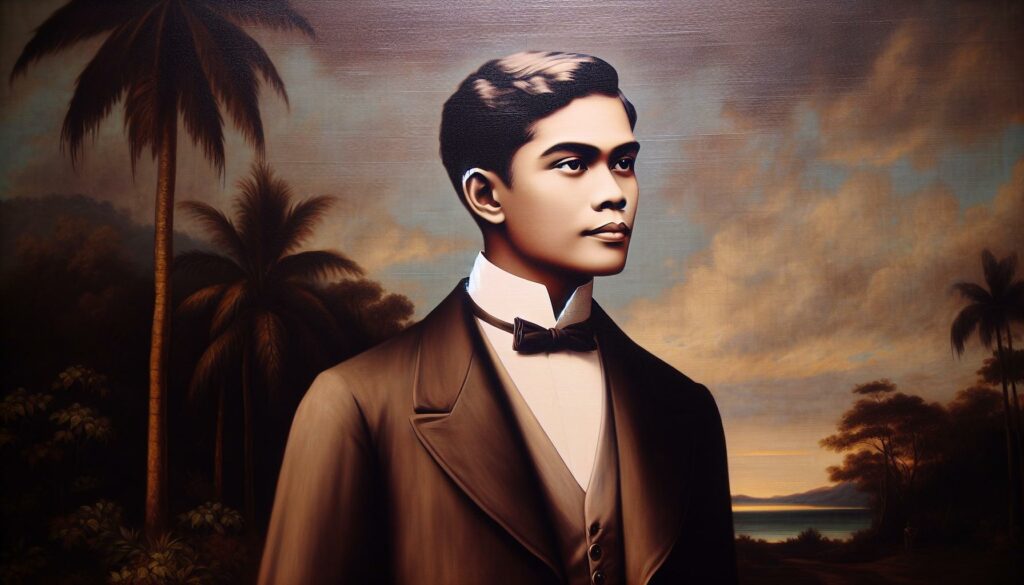Jose Rizal stands as a towering figure in Philippine history, embodying the spirit of a nation yearning for freedom and reform. His life and works continue to inspire generations, making him a pivotal character in the fight against colonial oppression. I’ve always found his journey fascinating, from his early education to his eventual execution, which ignited a revolution.
Background:slxuqk1q2qy= jose rizal wasn’t just a nationalist; he was a multifaceted intellectual, a writer, and a physician. His novels, Noli Me Tangere and El Filibusterismo, delve deep into social injustices and the struggles of his countrymen. As I explore his background, I uncover the layers of his influence and the legacy he left behind, shaping the Philippines’ identity and aspirations for independence.
Key Takeaways
- Jose Rizal’s Role: A key figure in Philippine history, background:slxuqk1q2qy= jose rizal is celebrated for his contributions to nationalism and social reform during the late 19th century.
- Literary Contributions: His novels, Noli Me Tangere and El Filibusterismo, critique colonial oppression and inspire a collective aspiration for independence among Filipinos.
- Education and Advocacy: Rizal’s extensive education in Europe equipped him with the knowledge to challenge social injustices, promoting civil rights through his writings and activism.
- Political Activism: He founded La Liga Filipina to unite Filipinos in the fight against colonial rule, emphasizing the need for social reform and civic engagement.
- Legacy: Rizal’s ideals continue to influence future generations, shaping the national consciousness and inspiring movements for freedom and justice in the Philippines.
- Commemoration: His contributions are recognized nationally, with his birth date celebrated as a holiday, ensuring that his life and works are included in educational curricula.
Background:slxuqk1q2qy= Jose Rizal
Jose Rizal, a pivotal figure in Philippine history, emerged as a leading nationalist during the late 19th century. His contributions encompass a diverse range of roles, including that of an intellectual, writer, and physician. Rizal’s education in Europe exposed him to various ideologies, which he later integrated into his works.
His most notable literary contributions, “”Noli Me Tangere”” and “”El Filibusterismo,”” serve as powerful critiques of colonial rule. These novels illuminate social injustices and encapsulate the struggle for freedom, galvanizing Filipinos toward a collective aspiration for independence. The impact of these works resonates deeply within Filipino culture, provoking thought and action among readers.
Rizal’s journey from education to execution underscores his commitment to reform and advocacy for civil rights. His execution on December 30, 1896, by Spanish authorities immortalized his legacy, making him a martyr for the cause of freedom. Rizal’s ideals continue to inform the Philippines’ national identity and inspire ongoing dialogues about justice and reform.
Early Life and Education
Jose Rizal’s early life and education laid the foundation for his future role as a national hero. Born on June 19, 1861, in Calamba, Laguna, he belonged to a well-to-do family that emphasized the importance of education.
Family Background
Rizal came from a distinguished family. His father, Francisco Mercado, was a prosperous landowner, and his mother, Teodora Alonso Realonda, was highly educated. They instilled a love for learning in their children. Rizal was the seventh of eleven siblings. His family background provided him access to education, which nurtured his intellectual growth and nationalist sentiments.
Academic Achievements
Rizal’s academic journey began at the age of three when he displayed remarkable intelligence. At the age of eleven, he finished his elementary education at the Ateneo Municipal de Manila, excelling in his classes. He later pursued a Bachelor of Arts degree and graduated as the valedictorian at the Ateneo. Following this, he attended the University of Santo Tomas, where he studied medicine.
Rizal’s pursuit of knowledge continued in Europe, where he enrolled at the Universidad Central de Madrid. He earned degrees in medicine and philosophy, further broadening his understanding of social issues. His education equipped him with the tools to challenge colonial rule through his writings.
Contributions to Philippine Nationalism
Jose Rizal’s contributions significantly shaped Philippine nationalism, primarily through his literary works and political activism.
Literary Works
Rizal’s novels, “”Noli Me Tangere”” and “”El Filibusterismo,”” served as powerful critiques of Spanish colonial rule. In “”Noli Me Tangere,”” Rizal exposed the social injustices and corruption prevalent in Philippine society, highlighting the struggles of Filipinos under oppressive authorities. “”El Filibusterismo”” continued this theme by advocating for reform and revolution. Both works inspired Filipinos to question colonial governance and stimulated discussions about freedom and identity. By intertwining historical context and social commentary, Rizal’s literature cultivated national consciousness and unity among Filipinos striving for independence.
Political Activism
Rizal’s political activism extended beyond his writings. He founded La Liga Filipina in 1892, a progressive organization aimed at fostering social reforms and uniting Filipinos in the struggle against colonial oppression. This organization sought to promote education, economic upliftment, and civic engagement, empowering citizens to demand rights and advocate for reform. Rizal’s involvement in the Propaganda Movement further illustrated his commitment to addressing injustices, evidenced by his contributions to publications such as “”Kalayaan”” and “”La Solidaridad.”” His activism, anchored in his belief in peaceful reform, mobilized Filipinos and encouraged them to envision a future free from foreign domination.
Legacy and Impact
Jose Rizal’s legacy profoundly shaped Philippine history and identity. His contributions as a writer and reformist continue to inspire subsequent generations of Filipinos.
Influence on Future Generations
Rizal’s writings, especially “”Noli Me Tangere”” and “”El Filibusterismo,”” resonate with themes of nationalism and social justice, influencing numerous Filipino thinkers and activists. His advocacy for education and civil rights laid a foundation for future movements, encouraging Filipinos to pursue freedom and equality. Educational institutions and youth organizations frequently reference his ideals, motivating young leaders to champion social change and national progress. Numerous historical figures, such as Andres Bonifacio and Emilio Aguinaldo, drew inspiration from Rizal’s work, which solidified his status as a national hero.
Commemoration and Recognition
Rizal’s contributions receive ongoing recognition through various commemorations. His birth date, June 19, is celebrated as a national holiday in the Philippines. Statues, parks, and institutions honor his memory and legacy as symbols of Philippine pride. The Rizal Law mandates the inclusion of his life and works in educational curricula, ensuring that future generations understand his impact on Philippine history. Internationally, Rizal’s works are studied for their literary and political significance, highlighting his global influence as a proponent of reform and advocacy for oppressed peoples worldwide.
Jose Rizal’s life and legacy are a testament to the power of education and activism in the pursuit of justice. His writings not only ignited a national consciousness among Filipinos but also challenged oppressive systems that sought to silence voices of dissent. As I reflect on his influence, I see how his ideals continue to inspire new generations to advocate for social change.
Rizal’s commitment to reform and his ultimate sacrifice remind us of the importance of standing up for our beliefs. His story encourages me to engage in dialogues about justice and equality, ensuring that his vision for a better Philippines remains alive. Through his enduring legacy, background:slxuqk1q2qy= jose rizal teaches us that one person’s voice can indeed resonate through time, inspiring countless others to strive for a brighter future.

